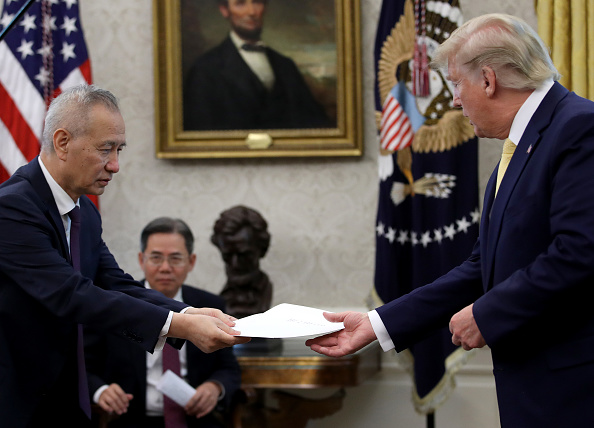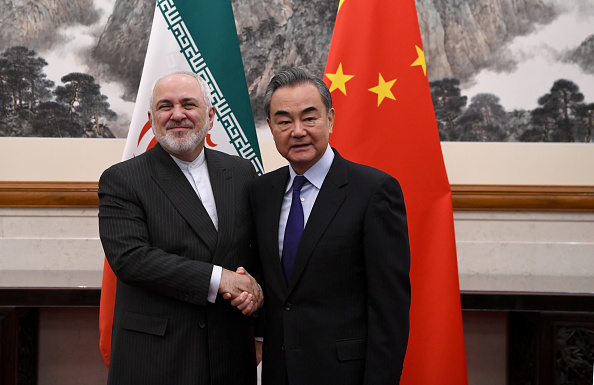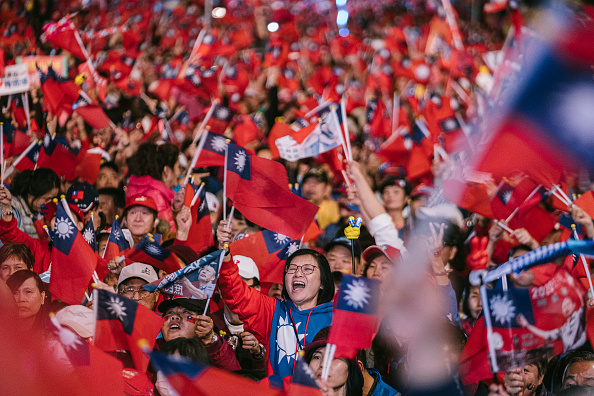
 Ink the Deal
Ink the DealBeijing and Washington have announced that they will formally sign the limited Phase One trade deal on January 15th, two years after the crippling trade war first began. The deal will be signed in Washington, DC during a visit by China's Vice Premier Liu He, the head of the country's negotiating team.
While no version of the deal's text has been made public, the deal would allegedly boost Chinese purchases of U.S. agriculture to $40 billion per year; open China's financial sector; stop devaluation of the yuan; and protect U.S. intellectual property. The Trump administration would, in turn, cancel or reduce import tariffs on Chinese goods.
Many have questioned China's initial promise to drastically increase imports of US farm goods to $40 billion. However, the agriculture promise was further cast in doubt after China announced that its annual low-tariff import quotes for corn, wheat, and rice will not increase to meet import commitments. Meanwhile, U.S. farmers continue to feel the heat as soybean exports to China have plummeted over 34% since the trade war began.
 Tinderbox
TinderboxThe global repercussions of the U.S. assassination of Qassim Suleimani, leader of the Quds force of Iran's Islamic Revolutionary Guard Corps, have already been widely felt. In the wake of the killing, China called the operation "dangerous" and said the U.S.'s actions will "aggravate regional tensions and turbulence" unnecessarily. China and Iran have deepened their relationship in recent months, and Beijing has harshly criticized the U.S. withdrawal from the Iranian nuclear deal. As the world's largest oil importer and a massive investor in the Middle East, China would have a great deal to lose from instability in the region.
China may play a role in preventing further escalation of regional tensions by strengthening regional security and political alliances with Iran and Russia to contain any further fallout, according to experts. Beijing also now has further ammunition to criticize U.S. actions in the Middle East, the heightened turmoil in the region, and overall human rights record. Following China's comments regarding Washington's actions, Secretary of State Pompeo's criticized Beijing for its handling of the Hong Kong situation, and its treatment of Uighurs in Xinjiang.
 Across the Straits
Across the StraitsOn Saturday, voters head to the polls in Taiwan to cast their ballots for the next President. Some say that the vote could be interpreted as a referendum on closer ties with the mainland, with the two candidates holding opposing views on how close to get to Beijing. 15-20 percent of voters are still undecided on their preferred presidential candidate, and economic issues are playing a large role in the deciding factor. Economic indicators are strong, which gives the U.S.-favored incumbent Tsai Ing-wen, of the independence-leaning Democratic Progressive Party (DPP), a strong chance of victory.
Meanwhile, China is alleged to have undertaken a campaign to circulate information and influence Taiwanese views on domestic politics. In a recent study, V-Dem, a Swedish research institute at the University of Gothenburg, found that Taiwan is more susceptible to foreign disinformation campaigns than any other region of the world. "By circulating misleading information on social media and investing in Taiwanese media outlets, China seeks to interfere in Taiwan's domestic politics and to engineer a complete unification," the report said. While the ruling DDP supports the allegations, the opposing Kuomintang (KMT) party has publicly rejected the idea that their pro-Beijing frontrunner Han Kuo-yu has been propped up by mainland efforts.
Prepared by China-US Focus editorial teams in Hong Kong and New York, this weekly newsletter offers you snap shots of latest trends and developments emerging from China every week, while adding a dose of historical perspective.
- 2019-12-20 A Level Playing Field
- 2019-12-13 It’s a (Limited) Deal!
- 2019-12-06 An Arbitrary Deadline
- 2019-11-22 On or Off Again?
- 2019-11-15 Counterweight Critique
- 2019-11-08 "I haven't agreed to anything"
- 2019-11-01 Don’t Hold Your Breath
- 2019-10-25 Weaponizing Diplomacy
- 2019-10-18 Economic Shudders
- 2019-10-11 A “Big Day of Negotiations”
- 2019-10-04 Birthday Celebrations
- 2019-09-28 A World Split in Two?
- 2019-09-20 Another Round
- 2019-09-13 Olive Branch or Olive Twig?
- 2019-09-07 The Unwinnable War?
- 2019-08-31 “Sorry, it’s the way I negotiate”
- 2019-08-23 Tit for Tat
- 2019-08-17 Slowdown Ahead?
